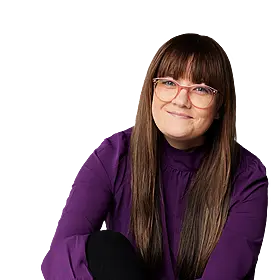September marks the 7th World Alzheimer’s Month, an internationally-recognised campaign to challenge the stigma surrounding dementia.
The Alzheimer Society of Ireland works across the country in the heart of local communities providing dementia specific services and supports, advocating for the rights and needs of all people living with dementia and their carers.
55,000 people in Ireland are living with dementia today and many of the are living at home with the support of carers. For every case of dementia diagnosed, it is estimated that there are at least three family members directly affected.
Lunchtime Live’s Ciara Kelly was joined by Una Caulfied who is a carer for her mum and Ann Twomey who was a carer for her late husband.
Life as a carer
Una has been looking after her mum, who is 92-years-old, at home full time for two and a half years now. Una’s mum has lived with her family for over twenty years and in the earlier days of her dementia, Una was still working outside the home. Speaking on Lunchtime Live, Una said:
“It got to the point where I was working maybe two days a week but when I was out, I wouldn’t know if maybe [mum] was leaving things on at home. She had a habit of ironing things on the end of the bed so because my own kids were teenagers and they were at home too, it wasn’t just mum at risk. I had to make a decision that I needed to stay at home to look after her.”
On the decision to become her mum’s full time carer, Una said:
“It was a difficult decision, I had worked all my life. To see the change in mum then, she wanted all of my time... I found it really difficult and became extremely stressed out. I didn’t know how to cope. There were mornings where I didn’t want to get up and times where I felt like I hated her but yet I still wanted to care for her and I didn’t want her to know I felt that way.”
At that point Una and her family made the decision to reach out to the Alzheimer’s Society of Ireland for support, working with a dementia advisor and attending a support group for carers.
Dementia Advisors will regularly meet with family members whose loved ones have been diagnosed with dementia. Advisors work to give the family time to talk through their feelings and experiences and speak with them about how to deal with what they are going through and how best to communicate with their loved one.
Una explained how attending the Family Carer Training with the Alzheimer’s Society of Ireland helped her:
“You get to a point where you understand the illness and you understand the person and it helps. It does make it easier. It doesn’t change anything but it does help.”
Transitioning from being a full-time carer
Ann was a full-time carer for her husband Noel up until he passed away. Noel lived with vascular dementia for seven years. That transition can often be difficult for carers as Ann explained about her own experience:
“It is very difficult. You could compare it to empty nest syndrome as you feel very redundant after the end of your role.”
Offering advice to other carers, Ann recommends seeking and finding as much support as you possibly can. Ann and Noel were waiting two years for a definitive diagnosis, which eventually came following a second opinion.
“After that, it was on to the Memory Clinic where there was a psychiatrist for the elderly, a clinical psychologist and a nurse. I essentially became the fourth member of that team and that was brilliant.”
Support for families and carers
The Alzheimer’s Society of Ireland offers a number of support services across Ireland and is working to grow that support network, establishing a minimum level of access in every county so everyone whose lives are affected by Alzheimer’s will have access to some level of support.
Speaking from her own experience, Ann says there isn’t enough support out there for carers but it’s definitely improved in recent years.
“There was absolutely nothing for me at that time. I remember a doctor saying to me once - I must’ve been looking particularly tired - that if I didn’t do something about getting care that I was going to be her second patient. So I used the rainy day fund to work on bringing in services myself,” Ann said.
“I brought in someone twelve hours a week and the change was phenomenal. It also helped Noel because there was somebody else coming in. The third person we brought in was a man on Saturdays and they would watch sports and go out. So I think it’s important that the government recognises that care in the home is essential.”
Carers in Ireland are mostly spouses between the ages of 65-74-years old and a further 25% are over the age of 74 so caring for the carers is hugely important as well.
As a carer herself at the moment, Una says that even just a short break in the evenings from her role as a carer would be a great help.
“Even if I’m sitting in my room and mum is in hers, there’s still that guilt. And then you still have your children and your husband so you feel like you are being pulled in all directions sometimes,” Una said.
“Two and a half years in and thankfully, I feel like we are coming out the other side. I put some structures in place and recently we were able to get some respite. We had two weeks holiday, which I think was our first break in about seven years and it was wonderful.”
Increase in diagnoses
It’s estimated that the number of people living with dementia in Ireland will rise to 153,157 by 2046 due to our ageing population. Today, 11 people in Ireland will be diagnosed with some form of dementia.
If you’d like to learn more about the support services offered by the Alzheimers Society of Ireland, visit: www.alzheimer.ie.
You can also contact the national helpline on 1800341341 (open Monday - Friday 10am to 5pm and Saturday 10am to 4pm).










